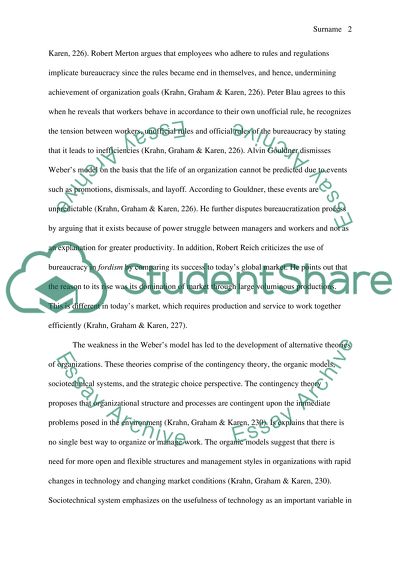Summarize Max Webers vision of bureaucracy, and the various critiques Essay. Retrieved from https://studentshare.org/sociology/1626902-summarize-max-webers-vision-of-bureaucracy-and-the-various-critiques-of-bureaucracy-do-you-see-any-viable-alternatives
Summarize Max Webers Vision of Bureaucracy, and the Various Critiques Essay. https://studentshare.org/sociology/1626902-summarize-max-webers-vision-of-bureaucracy-and-the-various-critiques-of-bureaucracy-do-you-see-any-viable-alternatives.


